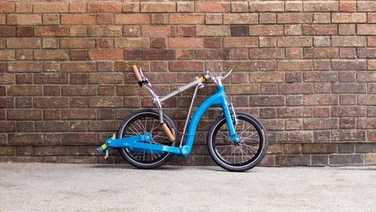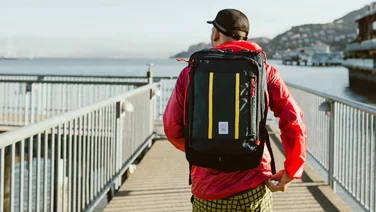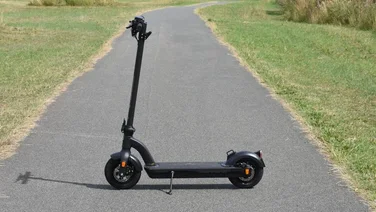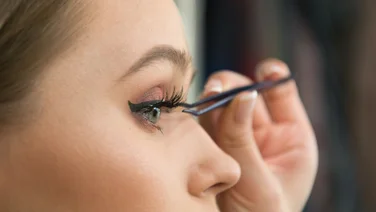To help us provide you with free impartial advice, we may earn a commission if you buy through links on our site. Learn more
- How to choose the best running shoes for beginners
- The best running shoes for beginners
- 1. Kalenji Run Cushion: Best budget running shoes for beginners
- 2. Adidas Run Falcon 2.0: Best running shoes for beginners under £50
- 3. Puma Velocity Nitro: The best running shoes under £100
- 4. New Balance Fresh Foam 1080v11: Best marathon running shoes for beginners
- 5. Brooks Glycerin 19: The most comfortable running shoes
- 6. Asics GT-800: Best beginner running shoes for overpronators
- 7. Asics Gel Venture: Best beginner trail running shoes

Beginner runners are not all cut from the same cloth. Some will be just starting a fitness kick and planning on doing a few short runs a week, while others will dive in at the deep end by signing up for a marathon before they even take a step.
So different beginner runners will have different needs, so it’s not always easy to pick out the best running shoes for you. Below, you’ll find all the information you need to help you make that crucial decision, with a range of top beginner options for new runners, plus all the information you need to consider when selecting your shoes.
READ NEXT: Take a look at our favourite running belts
How to choose the best running shoes for beginners
Are there different kinds of running shoes?
The two main types of running shoes are neutral and stability shoes, with the latter being designed to provide extra support for runners who overpronate, or roll their feet excessively inwards upon landing. Within those categories you’ll find a range of shoes, from plumply-cushioned shoes for comfort during everyday training to lighter speedsters with carbon plates to help propel you to personal bests.
Another category still is trail running shoes, which have a range of features to provide more grip and protection when running off-road.
What is gait analysis and should I do it before buying running shoes?
Gait analysis is a free service at most running stores where they check out your running form, and in particular your foot strike, to see if you overpronate. If you do, then a stability running shoe might be your best choice, while most runners will be best served by a neutral running shoe.
There’s no harm in getting your gait analysed before buying shoes, especially if you experience knee pain when running longer distances. However, it’s not essential, and generally it’s still best to go with whatever shoe feels right to you when you run in it, rather than one prescribed by a short test on a treadmill.
What surface am I running on?
You might be able to get by with road running shoes on hard trails, but if you’re planning to run through boggy ground or up and down steep mountain tracks, it’s generally better to have a dedicated trail shoe to ensure you get the grip and protection you need. If you’re planning to stick to the treadmill, then a road running shoe will serve you well.
What size should I get?
For most people, it’s wise to go half or even a full size up in running shoes compared to casual or smart shoes. This gives your toes more room, which can help you avoid uncomfortable rubbing and blisters, especially since your feet will swell up during longer runs.
What are the key stats to look out for?
The weight of a running shoe is important, and usually there’s a trade-off to be made between cushioning and weight. The more foam you have under your foot, the heavier a shoe tends to be. General training shoes are usually somewhere around the 300g mark, although this may vary depending on the size of the shoe.
Another stat you’ll see is the heel-to-toe offset or “drop” of a shoe. Most running shoes have more cushioning at the heel, and the drop refers to how much higher a shoe is at the heel compared to the forefoot. There’s no “correct” drop to look out for, it’s more a case of finding what works for you and then sticking with it. Traditionally running shoes have had a drop of around 10mm, but low-drop or even zero-drop shoes are also now popular.
READ NEXT: Our pick of the best running backpacks
How much do I need to spend?
Top-of-the-line running shoes now tend to cost well over £100 (and over £200 in some cases), but there are plenty of excellent options for under £100, and some solid ones below £50 as well. With our picks below we have mainly opted for cheaper running shoes, since you might well not fancy splashing out £130 when new to the sport.
There are a couple of top-end options in there too, though, and with those we’ve picked the latest version of long-running shoe lines, so you might be able to pick up the previous version for less if you prefer. In general, this is a top tip for saving money on running shoes, since the previous model will often only have small differences to the newest one.
How much running should I do at first?
If you’re completely new to running, it’s wise to restrict yourself to two or three short runs a week at most, with at least one day of rest in between. Following a couch-to-5K training plan is a great place to start, since it will help ease you into regular running and reduce your risk of injury.
The best running shoes for beginners
1. Kalenji Run Cushion: Best budget running shoes for beginners

Price: From £20 | Buy men’s | women’s from Decathlon
If you’re a new runner working with a tight budget, then it’s worth taking a look at the entire range of gear available from Decathlon’s in-house brand Kalenji. Along with shoes, you’ll find all the technical gear and running accessories you’ll need at an excellent price, and all of the kit is well made and far outperforms its price tag.
The Run Cushion shoes are perfect for runners starting out with a few short runs each week, perhaps as part of a couch-to-5K programme. They have a good amount of cushioning to protect your body as you take your first steps in the sport. They’re not built for racking up big mileage, so if you plan to run for the long-term it might be worth opting for a pricier pair, but even if you do end up wearing them out in a few months and moving on, the low price means you’ll have had your money’s worth.
Key specs – Terrain: Road; Arch support: Neutral; Weight: 235g; Heel-to-toe offset: 6mm
2. Adidas Run Falcon 2.0: Best running shoes for beginners under £50

Price: £45 | Buy men’s | women’s from Adidas
The Run Falcon 2.0 is a great entry-level option in Adidas’s extensive range of running shoes, and while they don’t contain the high-tech foams and carbon plates you find at the upper end of that range, they do deliver a comfortable ride for new runners logging 5-10km a few times a week.
They are also pretty good-looking, which is not the most common feature in running shoes and makes them more versatile than a shoe you only wear for your exercise. The midsole is made from a lightweight EVA foam and the durable rubber outsole grips well in the wet.
Key specs – Terrain: Road; Arch support: Neutral; Weight: Not given; Heel-to-toe offset: Not given;
3. Puma Velocity Nitro: The best running shoes under £100
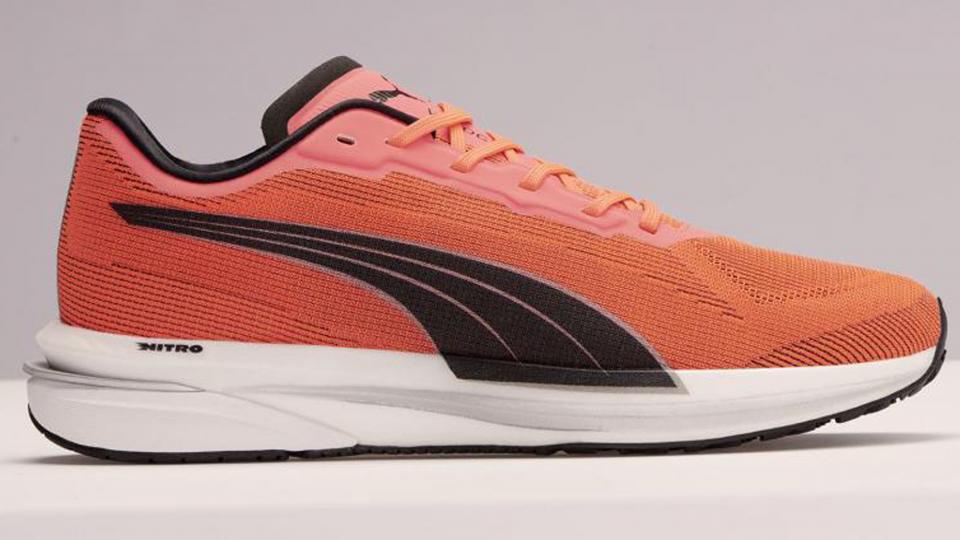
Price: £70 | Buy men’s | women’s from Puma
The Velocity Nitro is just a phenomenal all-round running shoe, and is a great option for any runner whose budget stretches up to but not beyond £100. For beginners it’s a terrific shoe to start out with in the sport, with the nitrogen-infused EVA foam in the midsole offering a bouncy and comfortable ride, but it’s also a shoe that you can keep using as you progress in the sport and start thinking about races.
Along with the enjoyable ride offered by the midsole, another killer feature on the Velocity Nitro is the PUMAGRIP outsole, which we found offered great grip on wet pavements and could also handle runs on light trails. It’s an outsole that’s built to last, too, and the Velocity Nitro in general is a shoe new runners who have plans to stick with the sport for the long term should consider.
Key specs – Terrain: Road; Arch support: Neutral; Weight: 276g (UK 9); Heel-to-toe offset: 10mm
4. New Balance Fresh Foam 1080v11: Best marathon running shoes for beginners

Price: £135 | Buy men’s | women’s from New Balance
Broadly speaking, our advice would probably not be to sign straight up for a marathon when you start running, but we get why so many people do it – having a goal is great motivation to keep going, and goals don’t get much bigger than running 42.2km in one go.
If you’re a new runner starting a training plan for a marathon, then it’s worth investing a bit more money into your shoe, since it needs to last the several months and many miles of training and then perform on race day itself.
The New Balance 1080v11 is a great pick for a first marathon. It’s comfortable and durable, and the midsole offers a nice balance of cushioning and responsiveness so, if you do start to get competitive about the time you want to run, it has the speed to help you hit your target.
It’s also a shoe that’s been around for over a decade, and you might well find a great deal on the previous version of the 1080, which has a very similar design to this latest edition.
Key specs – Terrain: Road; Arch support: Neutral; Weight: 269g (UK 9); Heel-to-toe offset: 8mm
5. Brooks Glycerin 19: The most comfortable running shoes

Price: £140 | Buy men’s | women’s from Brooks
The Glycerin is a shoe built for one purpose: to make running as comfortable an experience as possible. It only takes one step in the shoe to fall in love with the plush DNA Loft cushioning underfoot, and heavier runners in particular will appreciate the level of protection the Glycerin provides.
While it is an expensive shoe (you might be able to find the Glycerin 18 available for less), the Glycerin 19 will last you many happy miles of running, and it’s another great option for people taking on a first marathon who mainly want to complete the course in comfort rather than smash out a target time. There’s also a stability version of the Glycerin – the Glycerin 19 GTS – which will better suit runners who overpronate.
Key specs – Terrain: Road; Arch support: Neutral (stability version available); Weight: 289g; Heel-to-toe offset: 10mm
6. Asics GT-800: Best beginner running shoes for overpronators
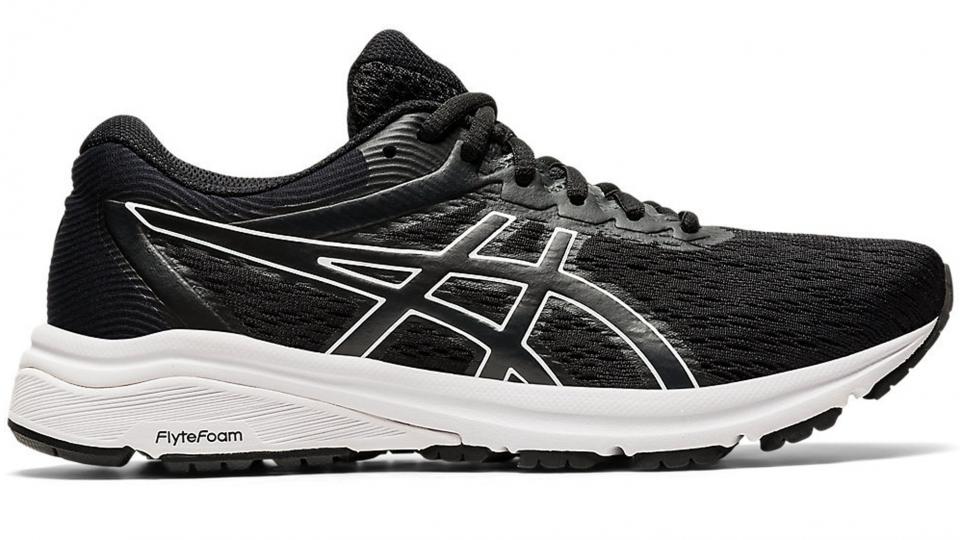
Price: £63 | Buy men’s | women’s from Asics
If you have had gait analysis and have been told you need a stability shoe, the GT-800 is a great beginner option. In truth, runners who overpronate get the thin end of the stick when it comes to good value shoes but the GT-800 comes in under £100 at RRP and is often in sales, so it’s one that can satisfy bargain-hunting new runners.
Don’t let the lower price fool you, though, this is an excellent running shoe. A mid-foot panel guides your foot into a neutral position on the run so you don’t roll too far inwards, and the FlyteFoam cushioning in the midsole is comfortable while still being firm enough to avoid any instability, which can be one unintended side effect of very soft foams in running shoes.
Key specs – Terrain: road; Arch support: stability; Weight: 241g; Heel-to-toe offset: 8mm
7. Asics Gel Venture: Best beginner trail running shoes

Price: £65 | Buy men’s | women’s from AsicsThe Gel-Venture 7 is a hardy trail shoe that works across a variety of different terrains, including rocky ground and muddy tracks, and it’s also a comfortable and stable shoe to use for long hikes. It’s a versatile option for those ready to start exploring off-road and, even if you’re planning to still spend plenty of time on the asphalt, the Gel-Venture 7 is a solid road-to-trail shoe.
The main downside of the Gel-Venture 7 is that it’s pretty heavy, so if you do start tackling faster runs or races on the trails it will be worth grabbing something lighter and speedier as well.
Key specs – Terrain: Trail; Arch support: Neutral; Weight: 355g; Heel-to-toe offset: 10mm

